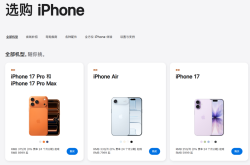Kuaishou's Overseas Expansion Journey: Years of Exploration, One Breakthrough
![]() 11/11 2024
11/11 2024
![]() 635
635
By Dou Wenxue
Edited by Ziye
After years of exploration overseas, Kuaishou has finally made a breakthrough in Brazil.
Recently, Kuaishou International, known as Kwai, announced that it would launch an e-commerce platform called Kwai Shop in the Brazilian market.
With the introduction of the shop function, Kwai platform users can add products that appear in short videos, live streams, or specific areas of the shop to their shopping carts and complete payments and subsequent order tracking without leaving the Kwai application.
According to Kwai Shop Brazil, currently, Kwai Shop offers two operating modes: self-operated by merchants and fully managed. It has covered all 27 states in Brazil, serving over 200 million consumers.
Image source: Kwai Shop Brazil's official WeChat public account
Kwai's ability to launch an e-commerce platform in Brazil is based on its strong user base accumulated in Brazil over seven years.
Brazil was one of the first regions Kuaishou chose for its overseas expansion. Since 2017, Kwai has been available in Brazil, initiating a long journey of exploration into overseas markets.
For a short video platform, it is essential to invest in attracting stable users before capturing the attention of advertisers and ultimately achieving profitability.
When Kwai first launched in various regions, it increased downloads by placing ads and offering substantial red envelope subsidies to users. However, due to differences in user composition and market environment across markets, this strategy had varying effects.
Under such circumstances, Kuaishou's overseas business underwent multiple adjustments and expansion attempts, with frequent changes in leadership, before gradually achieving stable development around 2020.
Subsequently, Kuaishou began localized operations in Brazil, catering to local user preferences by sponsoring events like the Copa América, FIFA World Cup, Brazilian national football team, and football clubs. It also launched short dramas, gradually achieving a breakthrough.
Data shows that Kwai currently has over 60 million monthly active users in Brazil, accounting for nearly 30% of the country's total population, with an average daily usage time exceeding 70 minutes.
Nowadays, Kwai has started "selling ads" in the Brazilian market. By bringing many domestic short video marketing strategies to Brazil, it has attracted the favor of many multinational companies, including Coca-Cola, Pepsi, Procter & Gamble, etc.
However, the success of the Brazilian model only signifies a phased victory for Kuaishou's overseas expansion. The exploration and breakthrough in other countries remain challenges for Kuaishou.
1. Kuaishou's Overseas Expansion: Breakthrough in Brazil
The story of Kuaishou and Brazil dates back to around 2017.
At that time, Kuaishou officially launched its "overseas expansion battle," introducing Kwai, the overseas version of Kuaishou, in markets such as Brazil, Indonesia, Russia, and South Korea.
Although Brazil had become a popular destination for Chinese internet companies at the time, with vast potential, it was not easy for Kuaishou to gain a foothold in Brazil, as the local market was largely dominated by local giants.
Similar to its domestic expansion strategy, Kuaishou also used paid marketing to acquire users in overseas markets like Brazil.
According to reports from LatePost at that time, in 2021, Kuaishou prepared a budget of USD 1 billion for its overseas expansion. In the first three months of 2021 alone, Kuaishou spent at least USD 250 million overseas, accounting for about one-sixth of the company's total marketing expenses in the first quarter.
Previous data indicates that Kuaishou's "money-burning" approach overseas mainly included three methods: placing ads, offering subsidies, and supporting content creators.
According to LatePost, Kuaishou bought ads on online platforms such as Google, Facebook, Instagram, and YouTube and also on Brazilian TV stations.
Kwai also offered high incentives for attracting new users. Initially, each user could earn USD 6 for referring a new user to register, and later, Kwai increased the reward to up to USD 20 per user on average.
Kwai also rewarded content creators on the platform or invited influencers from other social media to post content here. LatePost reported that there were specialized service providers in overseas markets that helped Kuaishou and ByteDance "dig up" influencers.
Additionally, Kwai introduced the domestic tipping model to Brazil while waiving tipping commissions, incentivizing users to create videos.
The tipping amounts on Kwai are divided into three tiers: BRL 4.9, BRL 10.9, and BRL 39.9, equivalent to approximately RMB 6.8, RMB 15.26, and RMB 55.85, respectively.
However, "paid marketing" is only the "initial operation" for a platform to gain recognition and attract users in an unfamiliar market. Kuaishou's success in Brazil is also related to its long-term localized operation strategy.
Amid platforms dominated by European and American cultural content like Instagram, Kwai, with its strong local flavor, undoubtedly stands out as a more "down-to-earth" presence.
Cheng Ji, head of Kuaishou's overseas operations, once stated that Kwai places great emphasis on the user experience of Brazilian users during its development, focusing more on local content in Brazil. To this end, Kuaishou has dedicated operation teams in both Brazil and Beijing to adapt to the local market.
Kwai's sponsorship activities also demonstrate its emphasis on local preferences.
For example, as Brazilian users love football, Kwai secured the broadcast rights for the Copa América and FIFA World Cup, became the official short video platform of the Brazilian national team, and established cooperation with football clubs. In July 2023, Kwai announced a partnership with the Brazilian club Fortaleza Esporte Clube, becoming its official short video platform.
In recent years, short dramas have become popular in China. Initially, Kuaishou cooperated with domestic agencies to produce a series of short dramas in Brazil.
With investment and feedback, Kuaishou found that domestic content methodologies were also applicable in Brazil. Therefore, it began cooperating with local agencies in Brazil, combining domestic short drama plots with Brazilian culture to produce a large number of short dramas and establishing a short drama section called TeleKwai.
It is understood that within three months of its launch, TeleKwai had over 3 billion views. As of November 2022, the number of views exceeded 7.53 billion.
According to 21st Century Business Herald, among all social platforms in Brazil, Kwai has become the top-ranked short drama brand in users' minds.
Apart from its diligent layout, Kwai's algorithm distribution mechanism allows more ordinary Brazilians to gain attention.
According to 36Kr, a 19-year-old boy named Vitor, born in southern Brazil, gained over 20,000 fans on Kwai (Kuaishou) within a month by posting dance videos.
Creation is the "lifeblood" of short video platforms, and motivating more users to join the creation "force" is a significant reason why Kwai stands out in Brazil.
Through a series of strategies tailored to local conditions, Kuaishou has gradually gained a foothold in Brazil.
2. Seven Years of Exploration on the Path to Breakthrough
Kuaishou's overseas expansion has not been smooth from the start. Since initiating its international layout in 2017, Kuaishou has been exploring the path overseas for seven years.
In these seven years, Kwai has spent substantial funds to expand its market, changing its expansion strategy four times and replacing its business leaders three times.
In 2017, Kwai entered markets such as Brazil and Indonesia. At that time, Liu Xinhua was in charge of Kuaishou's overseas business. According to information, Liu Xinhua left Cheetah Mobile in 2016 to join Kuaishou and served as its Chief Growth Officer in charge of international business from August 2017.
According to reports from LatePost at that time, initially, Kwai did attract users through massive ad placements, such as spending heavily to introduce Korean pop stars like G-Dragon and IU to Kwai in South Korea, attracting considerable traffic.
In the first half of 2018, Kwai's downloads topped the Google Play and App Store charts in countries like Brazil, Indonesia, and South Korea.
However, this good fortune did not last long. According to App Annie data, by the end of 2018, Kwai had fallen out of the top 20 download charts in these countries.
In December 2018, Liu Xinhua left Kuaishou, and the company's overseas business subsequently entered a period of silence.
Six months later, in June 2019, Kuaishou decided to restart its international business, led by Cheng Yixiao, the founder of Kuaishou. At that time, a former Kuaishou employee told LatePost that employees from other departments were "encouraged" to transfer (internally known as "water flow") to the international business, with notices even posted in restrooms.
However, at the same time, Kuaishou was engaged in the "K3 Battle" in China, aiming to reach 300 million daily active users. Therefore, resources were not tilt ed more towards Kwai.
In May 2020, internationalization once again became a key business focus for Kuaishou. Besides Kwai, it also launched Zynn and Snack Video targeting the North American and Southeast Asian markets, respectively.
Among them, Zynn temporarily became the focus of Kuaishou's overseas layout, aggressively expanding in North America shortly after its launch and attracting users through substantial red envelope subsidies.
It is understood that users could earn up to USD 110 by referring others to register for Zynn or watching videos. Therefore, within 20 days of its launch, Zynn topped the US iOS overall chart.
However, Zynn ultimately failed to achieve a true breakthrough.
At this point, Kuaishou's internationalization process had undergone three ups and downs.
In August 2020, Qiu Guangyu, the former Vice President and COO of Didi's International Business Unit, joined Kuaishou and became its overseas business leader, marking another rejuvenation of Kuaishou's overseas ambitions.
According to LatePost, in March 2021, led by Qiu Guangyu, Kuaishou's International Business Unit decided to integrate its three products: Kwai Latin America, Kwai Middle East, and Snack Video. After the integration, the three products would share user accounts and video content.
Subsequently, Kuaishou's International Business Unit also underwent a series of personnel changes, further clarifying responsibilities and beginning to recruit overseas employees in local markets in large numbers.
Image source: Kuaishou's official Weibo account
According to LatePost, as of October 2021, the ratio of Kuaishou's International Business Unit employees in China to those overseas was roughly 1:1.
At this point, Kuaishou's overseas business gradually returned to the right track.
In this new phase, Kuaishou not only decided to temporarily abandon entering the North American market but also focused on markets such as Indonesia, Thailand, and Vietnam. Simultaneously, it began attempting commercial monetization in the relatively mature Brazilian market.
Kuaishou, which had been continuously "spending money," could finally start "recovering."
3. Continuous Exploration of Profitability and Model Replication
Before launching the e-commerce platform, Kwai had already begun selling ads in the Brazilian market.
In October 2021, Kuaishou launched Kwai for Business in Brazil, marking the first time Kuaishou introduced a branded advertising platform overseas.
It is understood that Kwai for Business mainly offers three advertising placement solutions, generally similar to those in China.
The first is placing ad links in the lower-left corner of videos, allowing users to click and jump to the link. The second is app opening ads, shown before users open the app, leading to product detail pages upon clicking. The third is feed ads on the discovery page, where customers can provide static images or GIFs. When users stay in the app, the 5th to 6th videos that automatically refresh are the corresponding ads.
Image source: Kwai for Business's official WeChat public account
Besides these traditional branded ads, Kwai can also promote brands in ways more aligned with the platform's ecosystem, such as initiating topics and creating emojis.
For example, when the mobile game "DDTank Origin" entered the Brazilian market, it launched the #DDTankersFireUp challenge topic on Kwai, posting game-related guides and skill videos. Kwai also customized magical emojis for the mobile game and introduced influencers to produce review videos, assisting in promotion.
From Kwai for Business's official WeChat public account, one can also see cases where Kwai provided services for brands during crucial local events in Brazil, such as Carnival and the Copa Libertadores.
Furthermore, Kwai has tested live streaming business in Brazil. According to 36Kr, Tencent's game "PlayerUnknown's Battlegrounds" (PUBG) relied on Kwai live streams to achieve rapid breakthroughs in its early days in Brazil.
According to 21st Century Business Herald, currently, Kwai has attracted many Chinese and overseas enterprises as its advertisers. Overseas clients are mainly multinational corporations, such as Coca-Cola, Pepsi, Procter & Gamble, and Unilever. Chinese enterprises are more diverse, including products in various forms such as games and tools.
Subsequently, the launch of the e-commerce platform in the Brazilian market by Kwai will bring even more considerable revenue.
From Kuaishou's 2023 report, one can also see the impressive growth rate of overseas business revenue. The annual report shows that in 2023, Kuaishou's overseas business revenue increased by 265% year-on-year to RMB 2.284 billion. The operating loss of the overseas business narrowed from RMB 6.6 billion in 2022 to RMB 2.8 billion.
However, is Kwai's success in Brazil easily replicable in other regions?
This is questionable because Kwai's success in Brazil is the result of Kuaishou's tailored approach, and the fundamentals of each market differ.
Firstly, Brazil has a large number of internet users, with a high proportion of young people. According to Meltwater research, in 2023, Brazil had 187.9 million internet users, with a penetration rate of 86.6%. Social network users accounted for 66.35% of the population. The average age in Brazil is 33.8 years, and 99.1% of the population aged 16 to 24 own smartphones.
Kwai also capitalized on the emerging short video ecosystem in Brazil. Many marketing methods, though common for domestic users, were novel to Brazilian users and brands.
Meanwhile, Brazil has a nationwide passion for football, allowing targeted marketing based on this universal preference, while other markets require new user demand insights.
Therefore, for Kuaishou, each overseas region is a brand-new market. Initial ad placements and subsidies cannot be spared, supporting localized teams must be established, and local internet users' preferences must be accurately researched. These layouts require not only strength but also patience.
Currently, Kuaishou's overseas expansion process is still in the exploratory stage. The launch of the e-commerce platform is also a brand-new attempt. Whether the e-commerce path can be successfully navigated will determine the imagination of Kuaishou's Brazilian model and provide Kuaishou with more experience and reflection on exploring other international markets.
(The lead image of this article is from Kwai for Business's official WeChat public account.)








